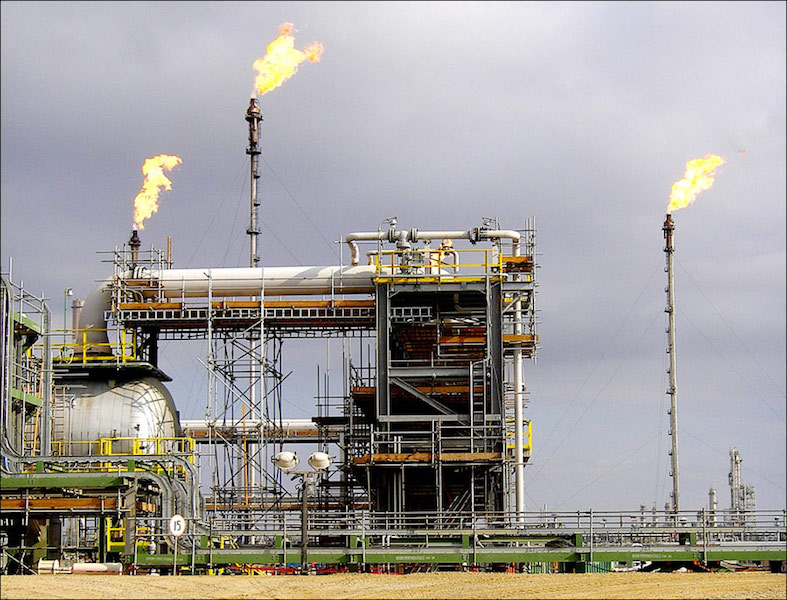Nigeria’s oil production falls 29.55% year-to-date below budget benchmark of 2.2mbpd
June 22, 20171.9K views0 comments
Nigeria’s suboptimal oil production levels of 1.55 million barrels per day year-to-date is 29.55 percent below the 2017 budget benchmark of 2.2 million barrels per day, according to analysts at Lagos-based Financial Derivatives Company (FDC)
According to the FDC analysts, production could well be a major challenge to the revenue expectations of government to prosecute the budget rather than prices at the international market.
The projected oil revenue of the recently signed 2017 budget at N1.99 trillion is premised on an average oil price of $44.5 per barrel and a
production level of 2.2 million barrel per day.
“On the production side, the nation’s output level has been suboptimal at an average of 1.55mbpd YTD. In May, Nigeria’s output level was 1.68mbpd,” they contend, adding that achieving an output level of 2.2mbpd seems overly optimistic.
Read Also:
- The conundrum in Nigeria vs. Dangote Refinery drama
- Nigeria’s Abuja among Uganda Airlines’s new expansion routes
- Airbus highlights Nigeria’s huge market potential on population, GDP
- Focus for the week: HY’24 Nigeria Oil & Gas Outlook: Hanging on a…
- Hydroponics farming: The soil-free solution to Nigeria's food crisis
“If Nigeria can attain an output level of at least 1.8mbpd with oil prices at current levels, the pressure on revenue will be dampened,”
they proffered.
FDC specifically noted that the average so far this year is 29.55% below the budget benchmark despite few and far between shut-ins and vandalisms this year.
On price levels, they said that though oil prices have been volatile recently in spite of the Middle East crisis and extension of the OPEC
cuts to 2018, as well as rising US shale production, Brent crude (a proxy for Bonny Light) is currently trading around $46.92pb (June 20th)
a $2.42 above the benchmark price of $44.50pb, while the year-to-date (YTD) average is $54pb, $9.50 above the benchmark price.
With an approximately 40 percent projected revenue coming from oil proceeds, the 29.55 percent fall in production would mean huge revenue shortfall that would exacerbate the estimated deficit of N2.35 trillion, about 2.18 percent of GDP.
Also read: 12% drop in oil pipeline vandalism increases Nigeria’s earnings
Giving an outlook on the implementation of the recently signed budget the FDC said, with imminent release of funds, money market liquidity is expected to increase, which would cushion short-term interbank rates that have oscillated between 12% and 15% on average due to liquidity
shortages, with sporadic aberrational spikes to as high as 200% per annum.
The average opening position of banks year-to-date- (up till June 19th) is N3.55bn, long with pockets of negative positions mid months.
Equally, the increased liquidity anticipated from the release of budget funds would have an inflationary impact. Nigeria’s headline inflation slowed further to 16.25% in May. However, this is still above the 15.74 budget’s benchmark and the CBN’s target of 11%.
The analysts also noted that increased demand for dollars would weigh on the exchange rate
“With increased funds available in the money market, the demand for dollars will intensify the pressure on the exchange rate, which as at
June 19th, was trading at N368/$ in the parallel market.
“Heightened demand pressure means that the CBN may have to deplete its external reserves further to defend the currency. Nigeria’s external
reserves level reached $31bn in the first few days of May, before falling to its current level of $30.21bn (June 16th),” they stated, adding that the slowdown in the reserves level could be attributed to the maturity of forward contracts sold early in the year.
